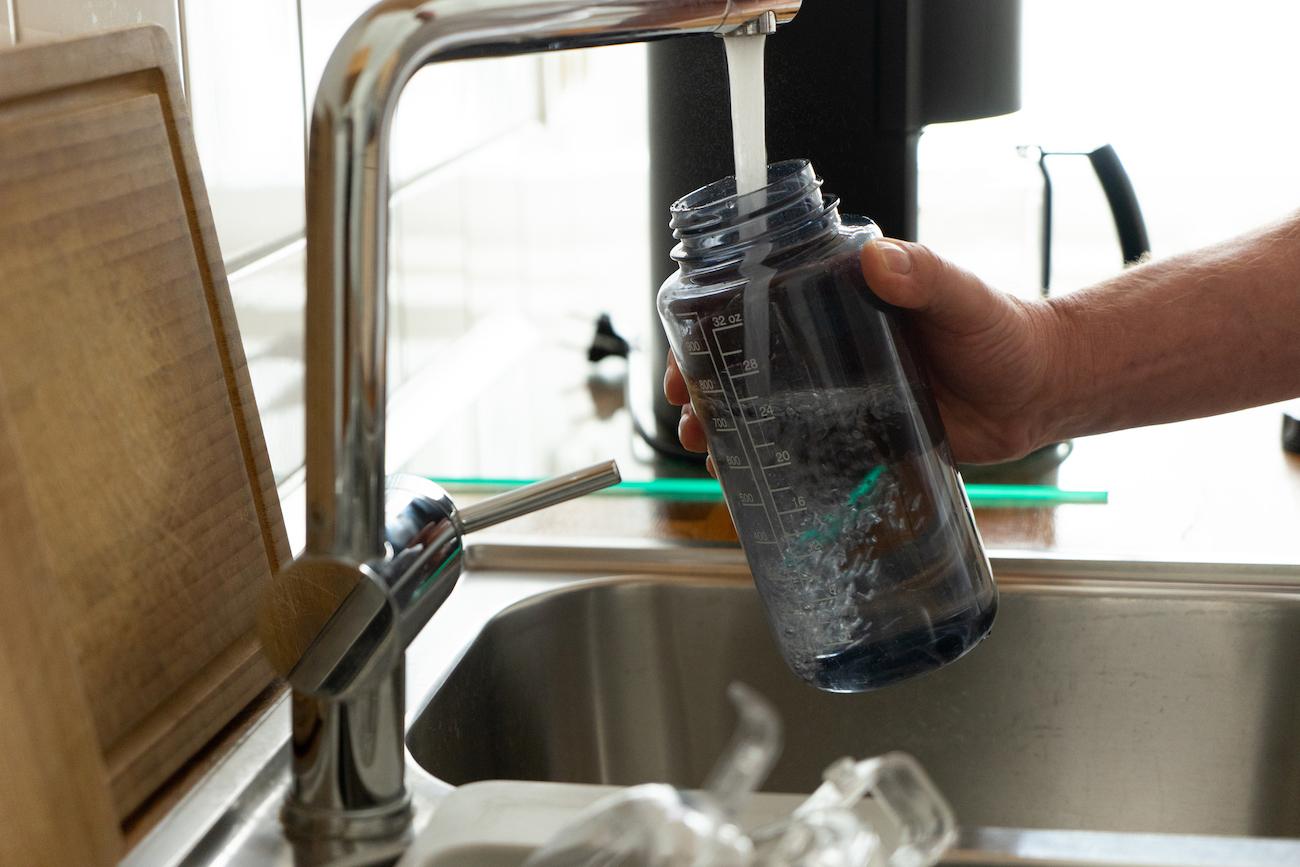How to Go Zero Waste as a College Student
Is it possible to be zero waste as a college student? Here are some of our best tips.
Updated Sept. 26 2019, 6:16 p.m. ET

So, you’re a college student trying to figure out ways to live more sustainably. First off, congratulations! You’re way younger and more in-tune to the issues of the world than I ever was as a college student. You should know that you’re doing a whole lot of good for the Earth.
This got me wondering: Is it easier to be zero waste as a college student? Or does living off of a college campus make it easier? Here are some of our best tips for having a low impact during the best four years of your life.
Look into the compost and community garden
You may not even realize these resources exist, but many colleges and universities have either a compost system, community garden, or both. All it takes is a little bit of asking around or digging around your school’s website. Some schools have a kitchen compost and if you inquire to the right people, you can gain access. Whenever you have food scraps, you can deposit them in the school’s compost instead of throwing them in the trash.
Many universities also have a gardening club. Perhaps the gardening club attends to the school’s public greenhouse or garden. Or maybe, if the club is low on resources, you could do little DIY gardening projects — like planting seeds in eggshells or upcycling egg cartons and other potential items to be used as pots.
If you poke around and find that your university or college does not have any of these resources, you could always take some initiative. You know, be the one to start it yourself. You could start a gardening club; the general rule at most schools is you need 10 signatures of people who will be in the club and then you can start it, run it, and petition for a budget. Once you have a gardening club, you can try to connect it to the school’s composting system and encourage other students to get involved by contributing their compost. Or hey, maybe you’re feeling super motivated and want to use the club’s budget to start a community garden or greenhouse! Anything’s possible now that you set the wheels in motion.
Use a reusable water bottle

If you’ve done any research at all into living a zero-waste lifestyle, then you already know that carrying a reusable water bottle is basically the golden rule. Whether you opt for a reusable plastic, glass, or stainless steel bottle, reusing a bottle and refilling it at your college’s water refill stations will save a ton of single-use plastic. And since college kids are notoriously strapped for cash, you can look at it as a monetary investment, too, as you’ll be saving big bucks in the long run by using the same bottle over and over again. Think about it: One reusable water bottle could last you four years of college.
Invest in durable school supplies
Back-to-school shopping can be fun and exciting, but don’t let that excitement cause you to overindulge and buy unnecessary school supplies. Or, you know, single-use plastic supplies. Before you reach for the familiar back-to-school supplies, do some research. After all, there is almost always a sustainable alternative to the plastic thing that’s most commonly marketed. And if you have any old school supplies that you can reuse — folders, rulers, scissors, binders — always opt to reuse instead of buying new.
In the event, of course, that you need to buy some new items, look into brands that either make supplies out of recycled items or out of sustainable materials. Sprout makes wooden pencils with caps of seeds so that at the end of their life span, you can plant them and grow either flowers or herbs; Onyx + Green products are made out of sustainable materials like corn plastic, recycled newspaper, recycled plastic, rubber, and more; Staedtler Textsurfer makes pencil highlighter alternatives that don’t use any plastic; and the Rocket Notebook is a smart, reusable notebook made with erasable pages. Of course, you could also skip the notebook altogether and go completely digital with your note-taking.
Use the university transportation
Sustainable transportation is a creed that most universities and colleges have in common. On many campuses, freshmen aren’t even allowed to bring their cars in an effort to cut back on vehicle traffic (and you know, because of parking lot limitations). Modes of transportation like walking, biking, and even using the university’s buses are always encouraged. It might seem like a pain in the butt to hop on a bike or use the school’s bus, but in the long run, it’s the most effective option for reducing your carbon footprint.
Buy used whenever you can (especially books)

Books are not only a massive expensive in college, but they’re also usually not worth the price considering you use these texts for a semester and then… and then what? Exactly.
As a general rule, try to buy used whenever you can — this includes clothes, school supplies that maybe someone is getting rid of, etc. But most especially, this motto can be applied to books. Students are always looking to sell their books after they don’t need them anymore; try buying them secondhand whenever possible. Your university’s book store might have a collection of old editions or secondhand books that have been returned. Or, look into options like Chegg, a service for college students that lets you rent books instead of buy them, or the library.
Rethink the shower caddy
Ah, the shower caddy. It’s a quintessential part of the living-in-a-dorm-room experience. But does it need to be so, um, plastic-y? It’s time to give your shower caddy a sustainable makeover by investing in plastic-free shower supplies like a shampoo bar, a conditioner bar, bar soap, a natural bath loofah, and a metal safety razor.
Bring your own cup

Earlier, we recommended bringing your own reusable water bottle everywhere. Well, what about all those red Solo cups at parties? At the risk of missing out on the red Solo cup tradition (you’ll totally be fine by the way), consider bringing your own mason jar or reusable cup to college house parties. And if you’re living that straw life, don’t forget to bring a reusable silicone, glass, or multiple-use plastic straw.
Start a zero-waste on-the-go kit
One of the most important parts of going zero waste — no matter where you are, on a college campus or otherwise — is anticipating what waste may inevitably come up. You never want to be in a situation where single-use plastic is the only option (although it will eventually happen, and you shouldn’t feel bad about it; this lifestyle is about cutting back and making conscious choices when you can). For this reason, start a zero-waste to-go kit that you either keep in your car or backpack. It should include a reusable tote bag, reusable coffee cup, to-go cutlery, cloth napkin, reusable straw, and a glass or stainless steel to-go container (for sustainable leftovers).
Avoid freebies
Remember that whole bit about college kids being strapped for cash? Well, it could stand to reason that’s why college students love freebies so much. Whether it’s junky plastic pens, frisbees, one of those foam stress balls, or a hat with a bank’s logo emblazoned on the front, there are always freebies on college campuses. (And there’s usually a lot of plastic involved.) But before you accept the free thing someone’s thrusting toward you in the Student Center, ask yourself: Do I really need this or am I only taking it because it’s free? If the answer is the latter, you might just find yourself tossing it later, creating unnecessary trash.